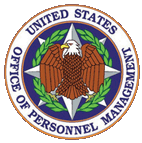 |
TRAINING
TRAINING
Department of Justice, Immigration and Naturalization Service,
Washington, D.C. and National Border Patrol Council, American Federation
of Government Employees, AFL-CIO, Case No. 98 FSIP 158, February
3, 1999 (Release No. 417).
The AGENCY proposed the following:
As part of basic training, all border patrol agents shall be
exposed once to [oleoresin capsicum] OC spray [commonly known
as pepper spray] as part of the course of instruction on the device.
The exposure will be at a distance of [six] to [eight] feet. The
agent can choose whether or not to be sprayed from the front or
the side. Employees may also choose to wear eye protection, (i.e.,
shooting glasses). The exposure will be part of a practical exercise
as administered by a certified INS instructor. Border patrol agents
who have already completed the aforementioned training academy
course on the effective date of the Enforcement Standard will
not be required to receive an OC exposure. However, if the officer
does not receive an exposure, he/she will not receive certification
to use the device. INS will keep statistics on the number of officers
exposed during training and the number of them who suffer unusual
reactions requiring attention beyond normal decontamination and
share the data with the Union on an annual basis.
The UNION opposed the exposure of border patrol agents to OC spray
as part of any course of instructions. However, agents could volunteer
to be exposed, but only after the Agency informed them of potential
health risks.
The PANEL ordered the parties to adopt the AGENCY's proposal, and
the following additional wording:
If the Employer becomes aware of any new studies concerning the
effects of CAP-STUN [the pepper spray device selected for use
by the Employer] or a comparable device, it will promptly share
the information with the Union.
TRAINING .
. . DRESS CODE
Department of Justice, Federal Bureau of Prisons, Metropolitan
Correctional Center, San Diego, California and Local 3619, American
Federation of Government Employees, AFL-CIO, Case No. 99 FSIP
44, May 13, 1999 (Release No 420).
The AGENCY proposed the following:
Staff attending training, whether at the institution or a remote
site, will dress in uniform, civilian casual business attire,
or professional business attire, as indicated at the time of the
training. Leisure/sports attire, e.g., shorts, tank tops, sweat
shirts, sweat pants, tennis shoes, sandals, T-shirts, jeans, or
provocative clothing is considered unacceptable.
The UNION proposed the following:
Staff attending training, whether at [Metropolitan Correctional
Center] San Diego or a remote site, will have the option of wearing
their usual working clothes or civilian casual attire. Casual
attire will include Jeans and Sneakers as long as they are neat
and clean. Training includes but is not limited to [annual refresher
training], retreats, and other class room environment. Training
that includes any type of physical activities such as but not
limited to are self-defense, shooting range, side-handle baton,
disturbance control, etc. may wear casual attire that is comfortable
for them.
The PANEL ordered the parties to adopt the UNION's proposal.
|
 |



